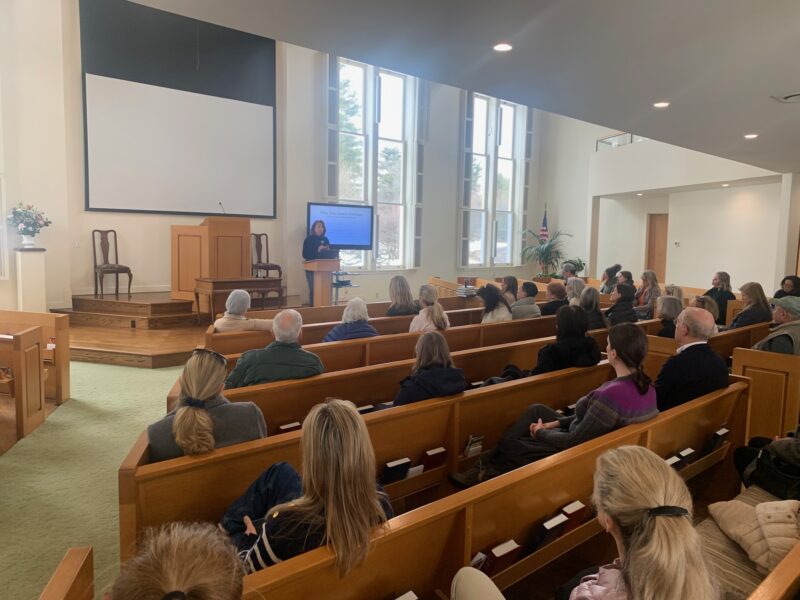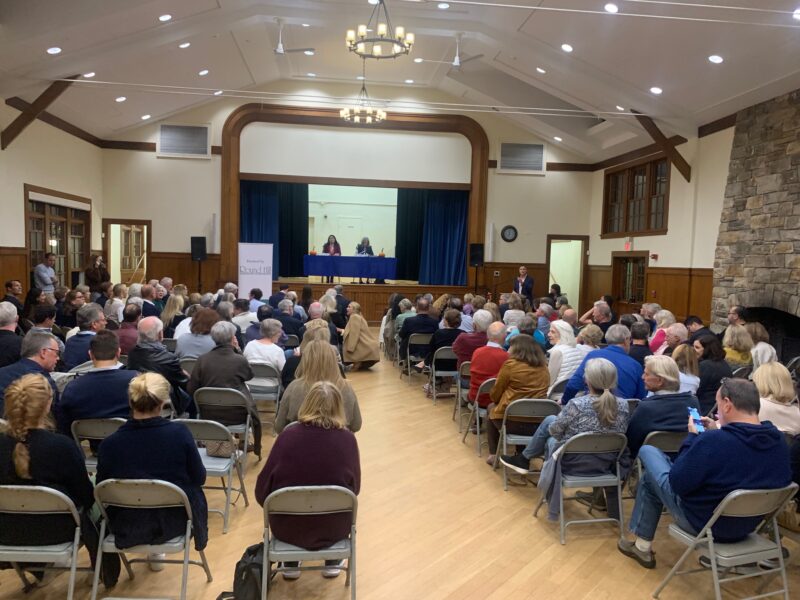Friday, February 23
Report on the February 21, 2024 presentation at Round Hill Community House
On February 21, 2024, at the Road Hill Community Church, The Greenwich Sustainability Committee (GSC) presented an open discussion to approximately 75 backcountry residents on the impact of synthetic chemicals on everyday life.
The GSC is a joint effort of several Town of Greenwich Departments, area non-profits, and local volunteers pursuing initiatives to address sustainable and environmental concerns. The one hour gathering was led by Anne Hulick, the Connecticut Director of Clean Water Action, and her material was titled “PFAS, The Forever Chemical and Our Water”.
According to her presentation, PFAS are per-and polyfluoroalkyl substances found in a group of toxic chemicals in a wide array of common consumer and institutional products including cookware, carpeting, furniture, clothing, firefighting foam, refrigerants, artificial turf, building materials, food packaging, and water. They are toxic and forever because they do not break down over time and do not disappear. PFAS remain in minute levels all around us.
They are globally present and have been around since the late 1940”s to where there are currently 12,000 varieties. They impact one’s health in altering the immune and thyroid function, liver and kidney disease, cancer, and adverse reproductive and developmental outcomes. There have been 28 legal suits filed by the US government against corporate abusers who, despite knowledge of the harmful results, continued to utilize PFAS in their products.
The PFAS in water was a prime issue of backcountry residents in attendance who rely on well water, and since nearby Parkway School was recently shut down when PFAS were detected in its well water system. More than half the time at the discussion was taken by numerous questions from the engaged audience, who wondered what can be done individually to combat the dangers.
The takeaway from the discussion is there is no way to get rid of what is already here. The only solution is to eliminate these chemicals from future production and usage. The details of the CT Water Action Plan in place is testing, monitoring, and remediation activities. The main individual action is to have one’s well water tested and install some kind of water filter in the home. The next is to be vocal and advocate for state legislators to support mandatory testing with water companies. Also the GSC welcomes anyone interested in supporting or joining their effort of working collaboratively to support a cohesive and comprehensive network to raise public awareness, identify gaps, and recommend actions and priorities.




